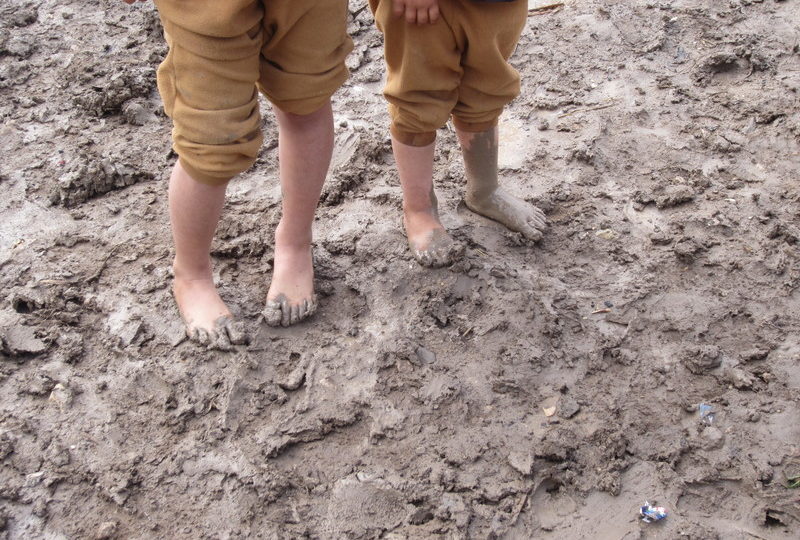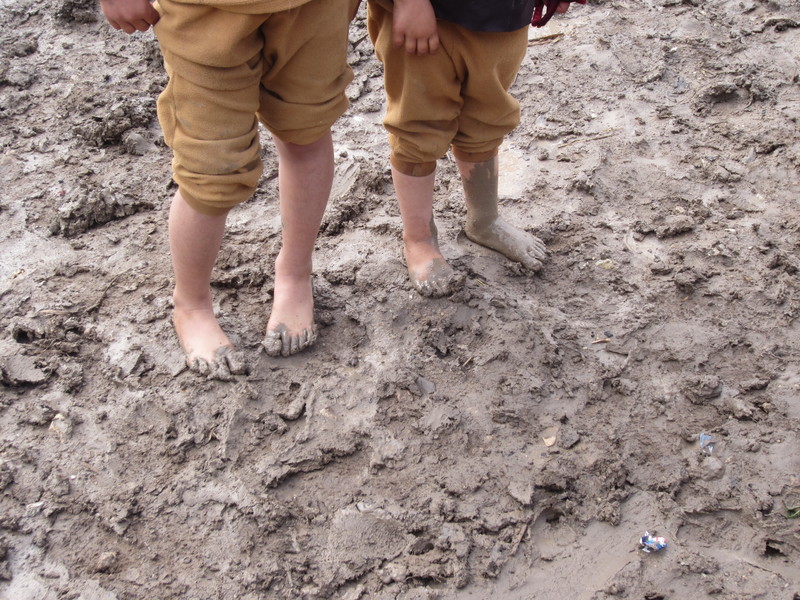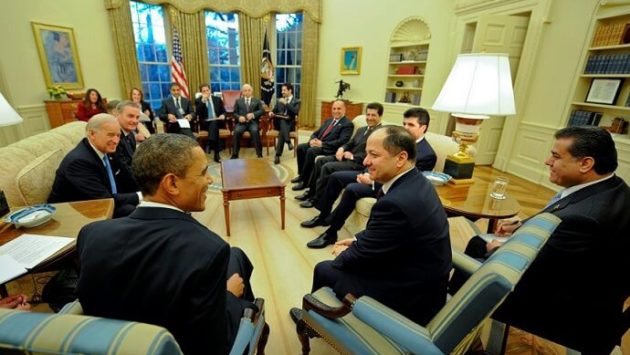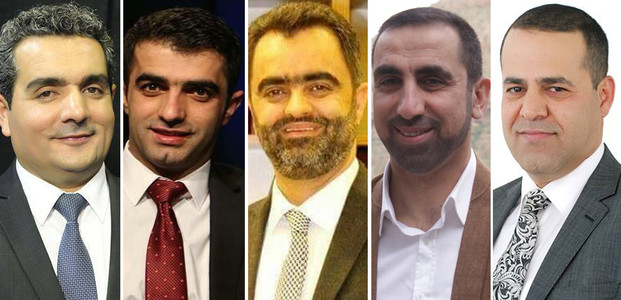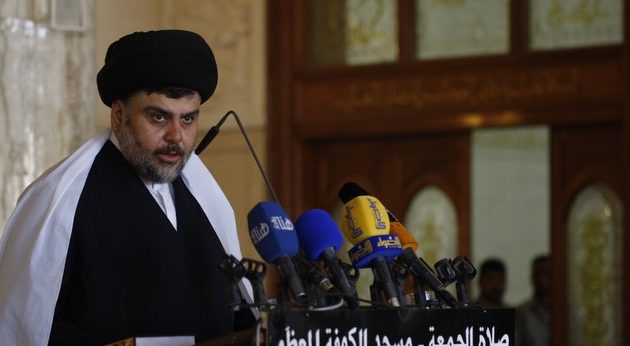Iraq: Dire Winter Conditions Expose Shocking Gaps in Humanitarian Assistance for Thousands Displaced
Source: Amnesty
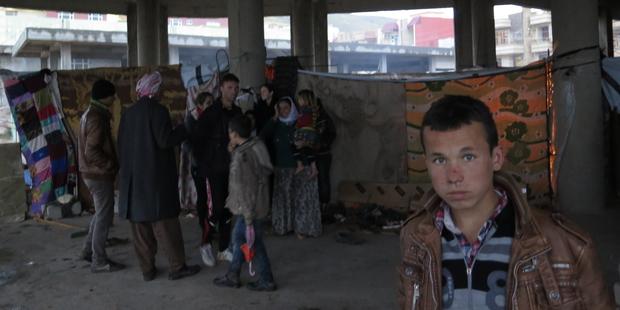
A lack of coordination and major gaps in humanitarian assistance is causing untold hardship for many of the 900,000 people displaced by the conflict in Iraq who are sheltering in the Kurdistan Region of Iraq (KRI), said Amnesty International.
Delegates from the organization who have just returned from a visit to the KRI found that many displaced people lacked basic items they need to survive the winter such as blankets, warm clothes and heating. Thousands are living in poorly equipped camps or informal settlements in dire conditions.
“There are shocking gaps in the humanitarian response. As a result, scores of people are living in ill-equipped camps or buildings with no walls and no shelter from the cold, wind or rain. Children are running around in thin clothes in the freezing cold. In some camps, toilets and clean water are inadequate. In some non-camp settings they are lacking entirely. As winter continues the situation is likely to get far worse,” said Khairunissa Dhala, Refugee Rights Advisor at Amnesty International.
“The international community and Kurdistan Regional Government must urgently make concerted efforts to ensure assistance to those sheltering inside or outside of camps in order to avert a fully-fledged humanitarian disaster.”
The Kurdistan Regional Government (KRG) has made some efforts to provide emergency accommodation and services to those displaced. However the response by the international community has been slow and overall, humanitarian assistance is not sufficient to meet the essential needs of displaced people.
Funding shortfalls are severe. The United Nation’s (UN) 2014-2015 Strategic Response Plan for Iraq has only been 33 per cent funded. The portion of the budget covering shelter and other basic items has so far only been 23 per cent funded. Several UN projects are currently funded only until March 2015.
“With little prospect for the displaced to return home soon, better funding, planning and coordination are needed to properly support those suffering the most,” said Khairunissa Dhala.
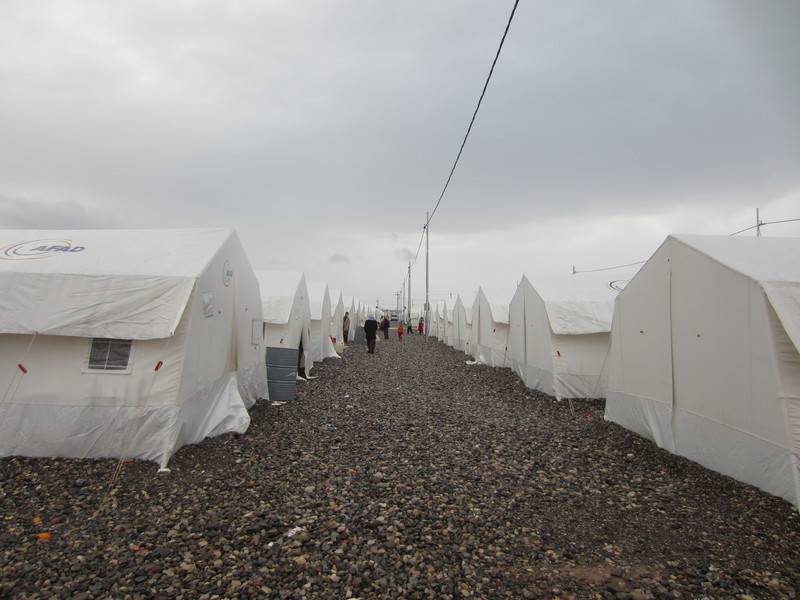
Shelter
Around 120,000 internally displaced people are currently living in 12 camps run by humanitarian agencies or the KRG in Dohuk governorate. However, the camps’ capacity is insufficient to host the whole IDP population. The majority are scattered in hundreds of informal settlements in building sites, community centres and other locations. Others are in private accommodation.
The standards of accommodation, facilities and services vary greatly from one camp to another. In Bersive I, a camp hosting about 10,000 people, the tents are not fully insulated from the rain, there is no hot water and the number of toilets and showers available does not meet minimum humanitarian standards. The poor conditions in several camps have discouraged some of the displaced to seek shelter elsewhere.
Amnesty International also visited informal settlements in Dairaboun and Zawita and found aid shortages and a critical lack of sanitation facilities.
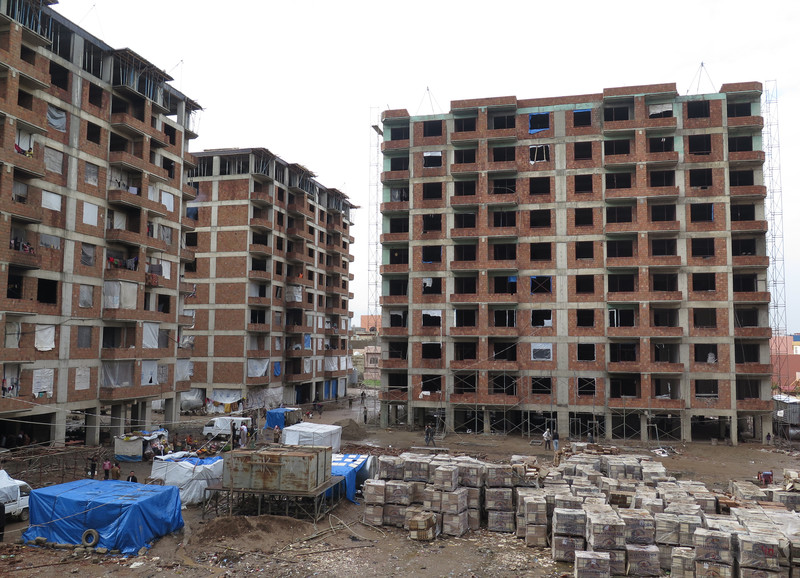
According to the UN around 40 per cent of the displaced population in Dohuk governorate live in construction sites and unfinished buildings. The majority of these lack walls, windows or doors leaving those inside exposed to the cold, wind and rain. They have no heating, water or sanitation facilities. Amnesty International has also confirmed cases of children falling from the buildings and getting killed or seriously injured as a result.
Many families sheltering in such buildings told Amnesty International that they would not have survived without the good will of the host community. They had not received any other assistance in months However, the strain on the host community is beginning to show. Some private owners told Amnesty International that they wanted displaced people to leave their sites, in order to complete construction.
Khani, a 22-year-old woman who lives in the basement of an unfinished building with six other families, is among those who have been asked to leave. They have no water or gas and have a heater provided by a charity. “We need more clothes and blankets. That’s our priority right now,” she said.
While the KRG has made efforts to move those in unfinished buildings to the camps, the government does not seem to have considered alternative solutions, such as finding suitable accommodation in non-camp settings.
“Anyone who has found themselves homeless after fleeing the spiralling violence in Iraq has the right to safe, warm, adequate shelter. This is particularly urgent as winter has started. No one should be evicted from their place of shelter if they don’t have anywhere else to go. The KRG authorities must work with the UN and other humanitarian organizations to ensure that IDPs have adequate shelter,” said Khairunissa Dhala.
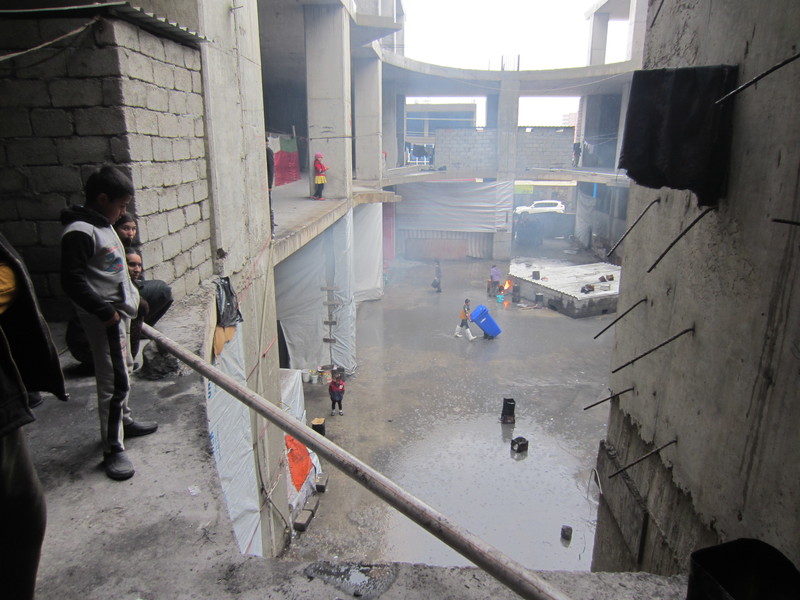
Access to education
There are an estimated 252,000 school aged children (between the ages of six and 17) displaced in the Kurdistan region. Very few of the children whose families Amnesty International spoke to in both camp and non-camp settings are going to school. With many camps lacking schools, some families cannot afford to pay for transport; in other cases families need their children to work in order to survive. Some parents stated that children who had previously studied the Arabic curriculum taught in the rest of Iraq were unable to follow the Kurdish curriculum.
“Education must be one of the top priorities for the humanitarian response to the crisis. These children have already lost their homes, they must not be denied their right to education,” said Khairunissa Dhala.
Amnesty International is also calling on the authorities together with the UN and other humanitarian organizations to improve registration of all those who have been internally displaced in order to ensure that their needs and vulnerabilities are properly assessed.
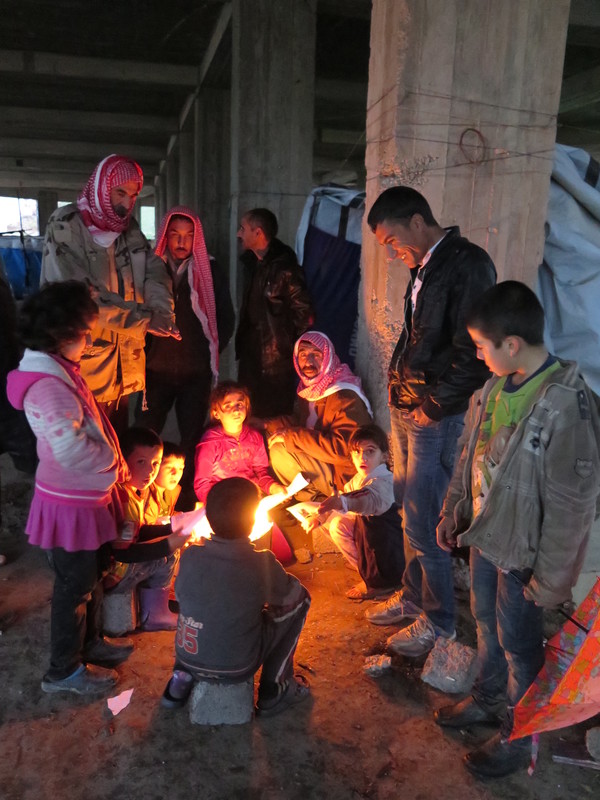
Background
Since the beginning of 2014, more than two million Iraqis have been displaced by ongoing violence across the country. The Kurdistan region hosts 48 per cent of the total displaced population, an estimated 946,266 individuals.
Since January 2014 the Kurdistan region experienced three waves of internal displacement, as a result of the military advances of the armed group calling itself the Islamic State (IS). The first wave occurred after IS forces gained parts of the Anbar governorate in December 2013-January 2014, causing local families (predominantly Sunni Arabs) to flee. The second wave of displacement took place in June-July 2014, following the takeover by IS of towns and villages in northern Iraq (most notably Mosul), forcibly displacing hundreds of thousands of people, including many belonging to religious and ethnic minorities. The third wave took place following the IS takeover of the Sinjar area, in the north-west of Iraq, on 3 August, which displaced hundreds of thousands of residents, most of them from the Yezidi minority group.
With a population of around 5 million, the Kurdistan region has been hosting around 230,000 Syrian refugees in addition to the IDPs.

